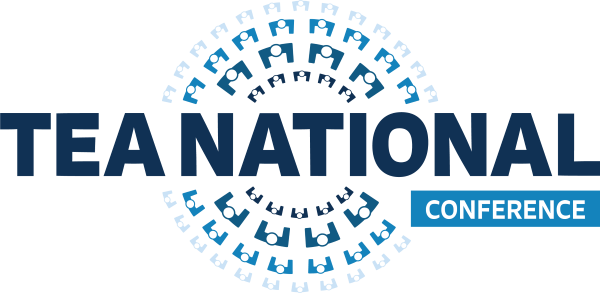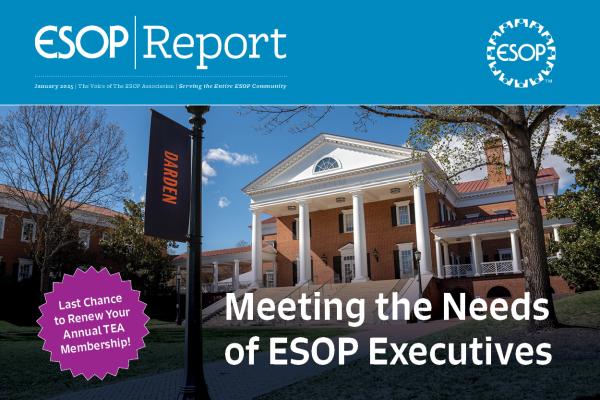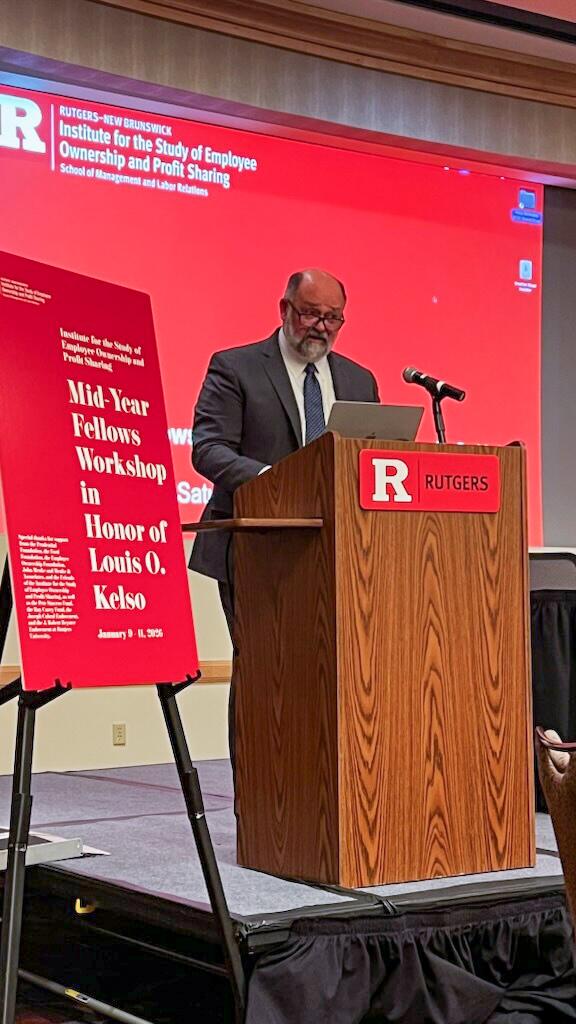Inaugural Public Policy Council Appointed
Group Will Help Lead Employee Ownership Policy at The ESOP Association
May 18, 2021, Washington, D.C. – The ESOP Association’s Board of Directors is proud to announce the inaugural members of its Public Policy Council (PPC), led by Executive Committee Chair Peter Ney of EA Engineering and eight other members of the of the Executive Committee.
The ESOP Association's Public Policy Council is a volunteer group of advocacy champions representing highly engaged TEA member companies, professionals, and individual employee-owner volunteers. The PPC is charged with helping shape and guide the public policy initiatives and advocacy activities of TEA. The expansion of TEA to include this new council is part of TEA’s trend of growth in recent years, not only in membership but also in its advocacy efforts, new headquarters and expanded member services.
“I am pleased and honored to chair the inaugural Public Policy Council,” said Peter Ney, Executive Vice President and Treasurer at EA Engineering, Science, and Technology, Inc. “Employee ownership is about sharing wealth, but also about sharing information, involvement, and responsibility. So it makes perfect sense that TEA developed this council structure to consistently solicit input and insights from its members on how public policy affects employee-owned businesses. I look forward to chairing this group and to contributing to strong, active public policy efforts going forward.”
Jim Bonham, President and CEO of TEA said, “We are really pleased that Peter is going to lead this new effort by TEA as we expand and increase our advocacy efforts. He brings not just a wealth of knowledge and experience, but a real passion for ESOPs. Together with the executive committee and the members of the whole Public Policy Council, they form a tremendous resource for our team to advise public officials, advocate for our members, and advance employee ownership issues.”
Members of this volunteer Council are the most highly engaged members of TEA, maintain well-established relationships with policy makers, and possess a deep knowledge of The ESOP Association and employee ownership issues. Their guidance will help TEA’s increased focus on advocacy efforts by bringing valuable real world experience and perspective into the public policy discussion. For more information on the PPC and to view all the members of the inaugural council, visit: https://esopassociation.org/advocacy/public-policy-council. Full leadership of TEA can be found here.
The ESOP Association
The ESOP Association (TEA) represents the interests of ESOP companies in the United States, including small and large employee owned companies in every sector and in all 50 states. In total, ESOP companies employ more than 10.6 million people and contribute $1.377 trillion to the U.S. economy annually. The ESOP Association is the powerful voice of the ESOP community and the leading advocate for a policy agenda that helps employee owned companies compete, grows employee ownership here and abroad, and creates jobs across the United States.
Employee Stock Ownership Plans
An Employee Stock Ownership Plan (ESOP) is a tax-qualified retirement plan authorized and encouraged by federal tax and pension laws. When companies launch an ESOP, they form a trust that purchases some or all the company’s shares and holds these shares in retirement accounts for employees. When the stock value increases or decreases, so does the value of employees’ accounts. Most ESOPs require no out-of-pocket contribution from employees. ESOPs provide unique benefits to the employees, the institutions, and the communities that they are involved with. ESOPs have been proven to: motivate employees, increase productivity, improve employee retention, excel at providing employee training, keep jobs local, counter wealth inequality, and contribute to business health and longevity.









